
Serenity and Splendor: Dzukija National Park
Dzukija National Park, located in the southern part of Lithuania, is a haven for nature enthusiasts and those seeking tranquility. The park is the largest protected area in Lithuania, spanning over 550 square kilometers. It is renowned for its pristine forests, meandering rivers, and charming villages that offer a glimpse into traditional Lithuanian life. The region is particularly famous for its pine forests, which create a serene atmosphere perfect for hiking and birdwatching. The park is home to a diverse array of wildlife, including elk, deer, and a variety of bird species. Visitors can explore numerous trails that wind through the park, leading to picturesque spots like the Nemunas River and the Čepkeliai Marsh. The latter is one of the largest marshes in Lithuania and a unique ecosystem worth exploring. For those interested in cultural experiences, the park's villages, such as Marcinkonys and Merkinė, offer traditional wooden architecture and local crafts. One of the park's highlights is the ethnographic village of Zervynos, where visitors can see traditional wooden houses and learn about the region's cultural heritage. Additionally, the park offers activities such as canoeing on its rivers, mushroom picking in the forests, and even beekeeping experiences. Whether you're an adventurer or someone looking to relax, Dzukija National Park provides an unforgettable escape into nature.
Local tips in Dzukija National Park
- Visit in late spring or early autumn to enjoy mild weather and fewer crowds.
- Wear comfortable hiking shoes as the park's trails can be uneven and muddy.
- Bring insect repellent, especially if you plan to visit the marshes.
- Try local dishes like cepelinai (potato dumplings) in the park's villages.
- Consider renting a bike to explore the park more extensively.
Serenity and Splendor: Dzukija National Park
Dzukija National Park, located in the southern part of Lithuania, is a haven for nature enthusiasts and those seeking tranquility. The park is the largest protected area in Lithuania, spanning over 550 square kilometers. It is renowned for its pristine forests, meandering rivers, and charming villages that offer a glimpse into traditional Lithuanian life. The region is particularly famous for its pine forests, which create a serene atmosphere perfect for hiking and birdwatching. The park is home to a diverse array of wildlife, including elk, deer, and a variety of bird species. Visitors can explore numerous trails that wind through the park, leading to picturesque spots like the Nemunas River and the Čepkeliai Marsh. The latter is one of the largest marshes in Lithuania and a unique ecosystem worth exploring. For those interested in cultural experiences, the park's villages, such as Marcinkonys and Merkinė, offer traditional wooden architecture and local crafts. One of the park's highlights is the ethnographic village of Zervynos, where visitors can see traditional wooden houses and learn about the region's cultural heritage. Additionally, the park offers activities such as canoeing on its rivers, mushroom picking in the forests, and even beekeeping experiences. Whether you're an adventurer or someone looking to relax, Dzukija National Park provides an unforgettable escape into nature.
When is the best time to go to Dzukija National Park?
Iconic landmarks you can’t miss
Trakai Island Castle
Explore Trakai Island Castle, a medieval fortress on an island, immersing yourself in Lithuania's rich history and enchanting landscapes.
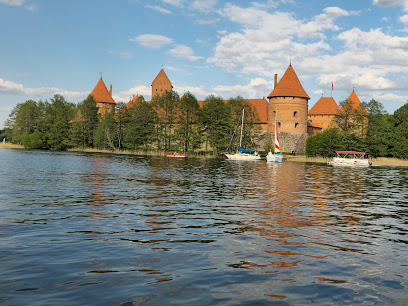
Curonian Spit National Park
Explore the breathtaking landscapes and rich biodiversity of Curonian Spit National Park, a UNESCO World Heritage Site in Lithuania.

Merkinės Piramidė
Explore Merkinė's Pyramid in Lithuania, where architectural wonder meets breathtaking natural beauty, perfect for a tranquil retreat.
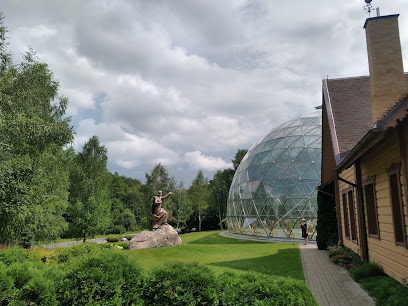
Grūto Parkas
Explore Grūto Parkas in Druskininkai, Lithuania, a unique park featuring Soviet-era sculptures set amidst serene natural beauty.
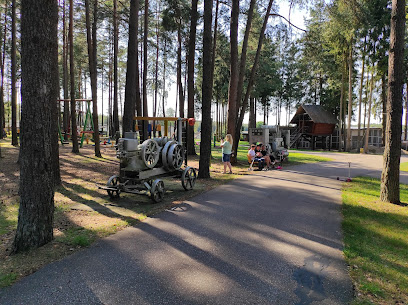
Neris Regional Park
Explore the breathtaking landscapes and rich biodiversity of Neris Regional Park, a natural oasis for outdoor adventures in Lithuania.
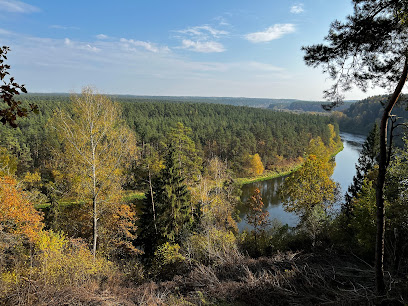
Dzūkijos nacionalinio parko ir Čepkelių valstybinio gamtinio rezervato direkcija
Discover the breathtaking landscapes and rich biodiversity of Dzūkijos National Park, Lithuania's natural gem for outdoor enthusiasts and nature lovers.
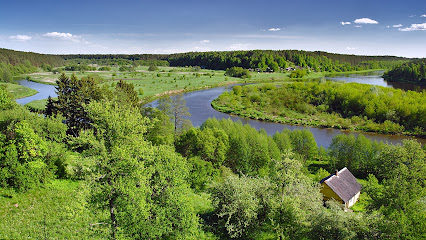
Žemaitijos nacionalinis parkas
Explore the breathtaking beauty of Žemaitijos Nacionalinis Parkas - a nature lover's paradise filled with scenic landscapes, wildlife, and rich cultural heritage.
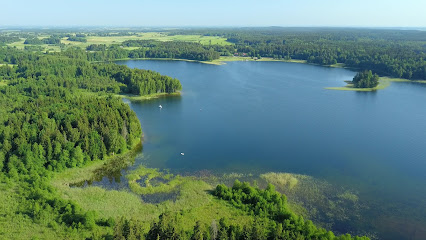
LLB Museum
Discover the heart of Lithuanian culture at LLB Museum in Rumšiškės, a captivating journey through history and art awaits every visitor.
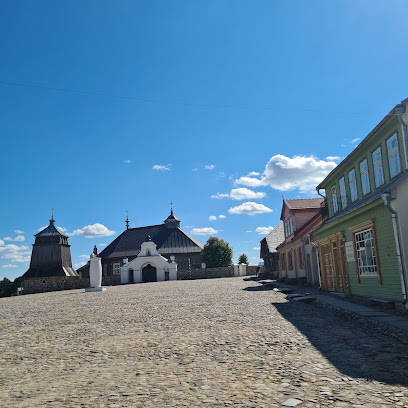
Krekenava Regional Park Observation Tower
Discover the breathtaking views of nature at Krekenava Regional Park Observation Tower, a stunning tourist attraction in Lithuania's Panevėžys District.
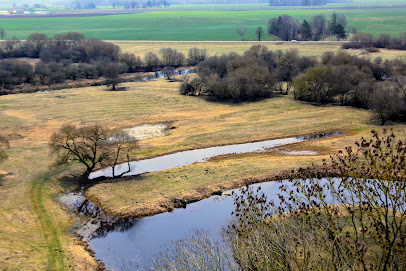
Kaunas Lagoon Regional Park
Explore the natural wonders of Kaunas Lagoon Regional Park, a lush national park ideal for outdoor adventures and serene escapes in Lithuania.
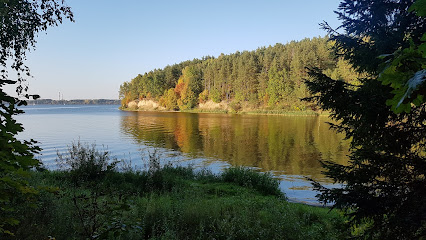
Nemunas Loops Regional Park
Discover the breathtaking beauty of Nemunas Loops Regional Park, a serene escape into nature filled with diverse wildlife and stunning landscapes.
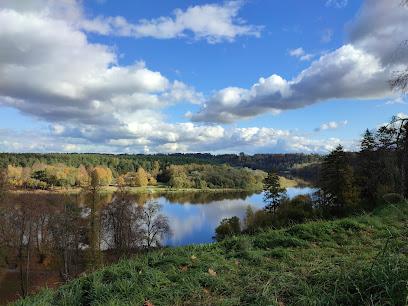
Meteliai observation tower
Discover the breathtaking views from Meteliai Observation Tower, a scenic gem in Lazdijai District perfect for nature lovers and photographers.
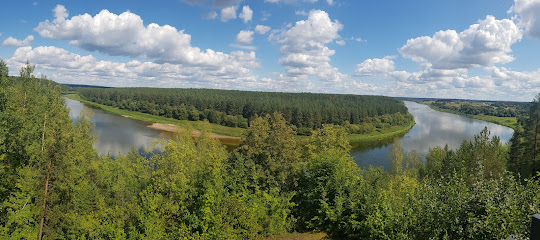
Trakai Historical National Park
Explore the breathtaking landscapes and rich history of Trakai Historical National Park, a must-visit destination in Lithuania for nature and culture enthusiasts.
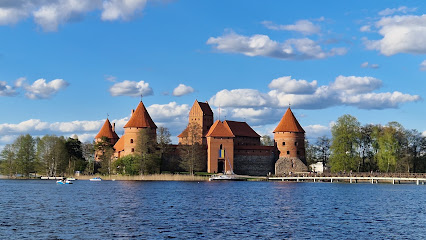
Girios Echo Museum
Explore the Girios Echo Museum in Druskininkai for a unique blend of art, history, and nature amidst beautiful landscapes.
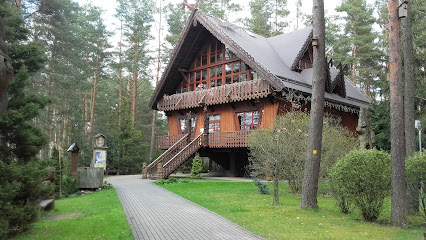
Nemunas Loops Regional Park, Visitor Center
Explore the breathtaking landscapes and rich biodiversity of Nemunas Loops Regional Park, a must-visit natural attraction in Lithuania.
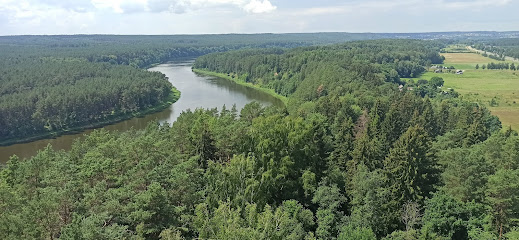
Unmissable attractions to see
Druskininkai Aquapark
Experience the ultimate aquatic adventure at Druskininkai Aquapark, Lithuania's premier water park filled with fun, relaxation, and wellness.
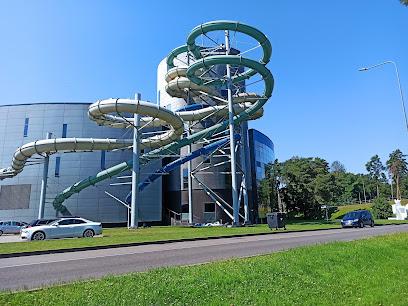
Merkinė mound
Experience the breathtaking views and rich history at Merkinė Mound, a must-visit tourist attraction in Lithuania's stunning Varėna District.
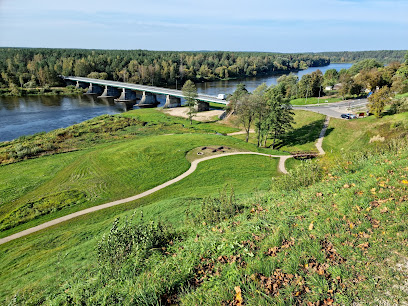
Merkinė observation tower
Experience the stunning panoramic views of Merkinė, Lithuania from the iconic Merkinė Observation Tower, a perfect blend of nature and history.
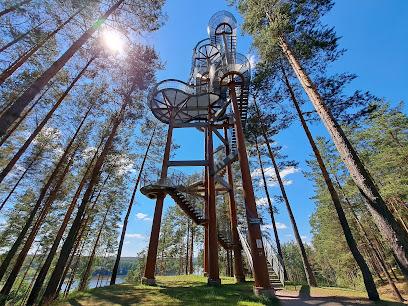
Nemunas Loops Regional Park
Explore the breathtaking landscapes and rich biodiversity of Nemunas Loops Regional Park, a natural haven in Lithuania perfect for outdoor adventures.
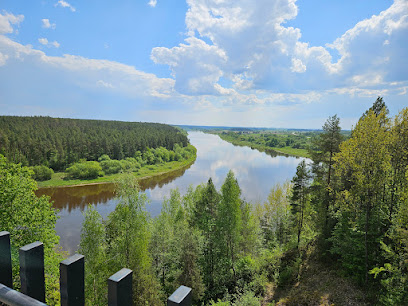
Apverstas namas Druskininkuose
Explore the whimsical Apverstas Namai in Druskininkai, an upside-down house attraction that promises fun and unique photo opportunities for all visitors.
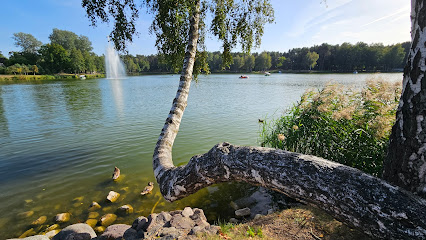
Ūlos akis
Explore the natural wonders of Ąžuolų Akis in Varėna District – a tranquil escape into Lithuania's stunning landscapes and rich cultural heritage.
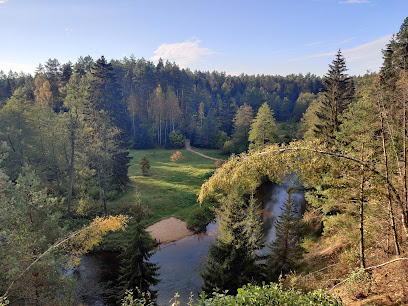
House on a chiken leg
Discover the enchanting House on Chicken Legs in Merkinė, a whimsical attraction steeped in folklore and creativity, perfect for family adventures.
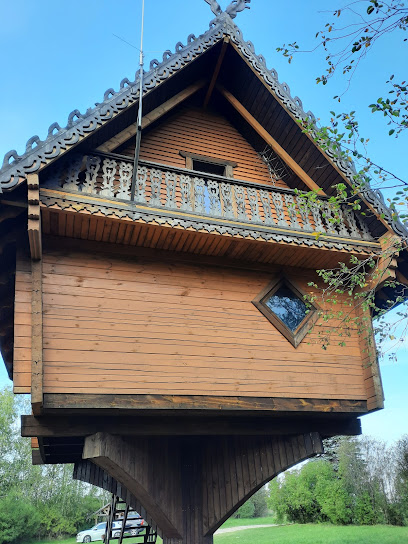
Merkines krašto muziejus / Merkinė Regional Museum
Explore the rich history of Lithuania at the Merkinė Regional Museum, where culture meets beautiful landscapes in a captivating setting.
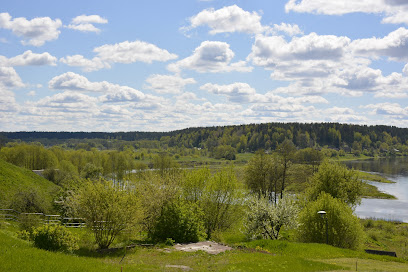
Merkinės dvarvietė
Explore the serene beauty and rich history of Merkinės Dvarvietė, a captivating tourist attraction in the heart of Lithuania’s Varėna District.
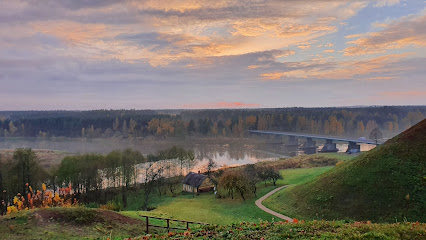
Dzukija National Park Ethnographic Homestead
Explore the Dzukija National Park Ethnographic Homestead for a unique glimpse into Lithuania's rich cultural heritage and traditional rural life.
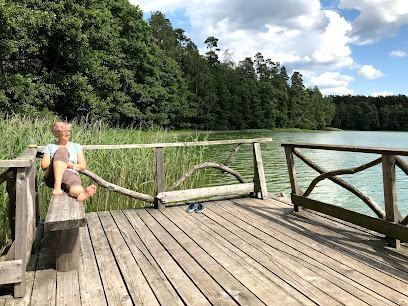
Merkinė Cross Hill
Discover the tranquility and spirituality of Merkinė Cross Hill, a unique pilgrimage site surrounded by stunning natural beauty in Lithuania.
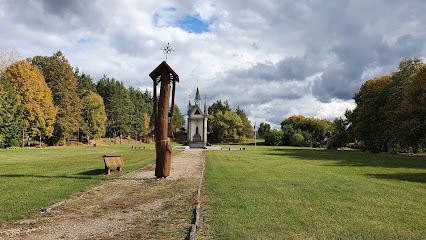
Jonionių akmenys
Explore Jonionių Akmenys: A stunning natural attraction in Lithuania's Varėna District, rich in folklore and breathtaking landscapes.
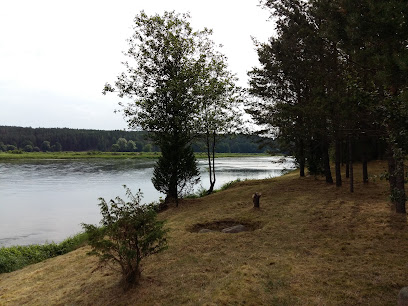
Šaudyklos kalnas
Experience the breathtaking views and serene beauty of Šaudyklos Kalnas in Lithuania's Varėna District, a perfect escape for nature lovers and adventurers.
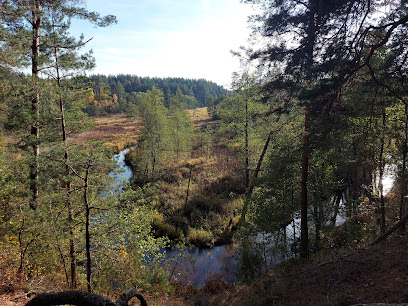
Merkio atodanga
Explore the natural beauty and cultural heritage of Merkio Atodanga, a captivating tourist attraction in the heart of Merkinė, Lithuania.
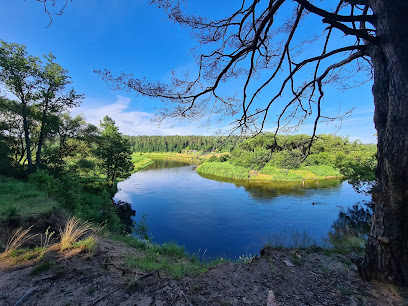
Druskininkų žiedinė sankryža
Discover the enchanting Druskininkų Žiedinė Sankryža, a beautiful blend of nature and culture in the heart of Druskininkai, Lithuania.
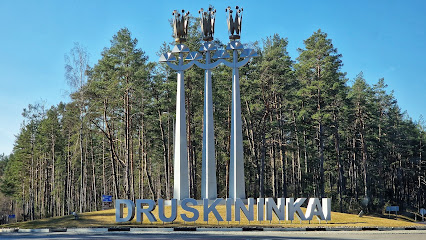
Essential places to dine
Etno Dvaras
Discover authentic Lithuanian flavors at Etno Dvaras in Vilnius - where every dish tells a story.
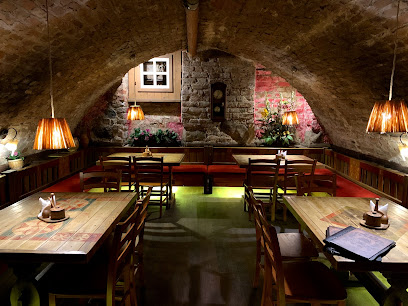
Senoji trobelė
Discover authentic Lithuanian flavors at Senoji Trobelė, where tradition meets taste in a cozy Vilnius setting.
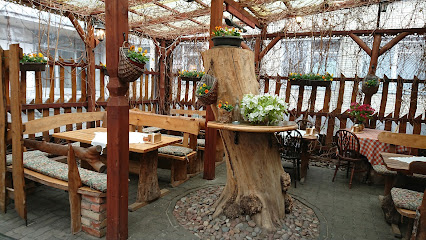
Žemaičių ąsotis
Experience authentic Lithuanian cuisine at Žemaičių ąsotis in Vilnius – where tradition meets flavor in every dish.
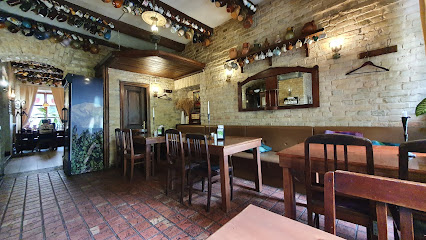
Food from lithuania
Experience authentic Lithuanian barbecue at Food from Lithuania in Alytus - where rich flavors meet warm hospitality.
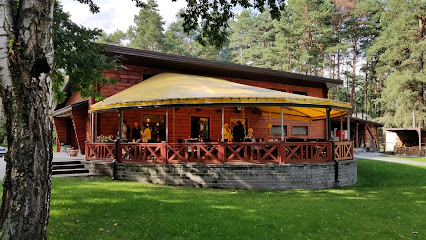
Dzūkų alaus restoranas
Discover authentic Lithuanian flavors at Dzūkų Alaus Restoranas in Alytus—where tradition meets taste in every dish.
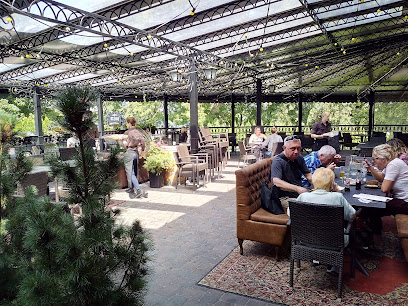
Pirciupiu karcema, restoranas, Gretana
Experience authentic Lithuanian cuisine at Pirciupiu Karcema - where tradition meets flavor in every dish.
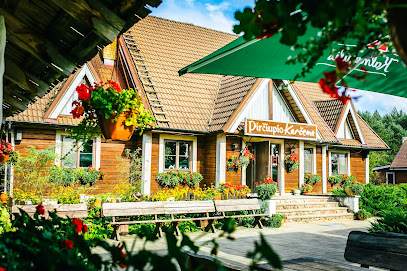
Dzūkijos Dvaras
Experience authentic Lithuanian cuisine at Dzūkijos Dvaras – where every dish tells a story.
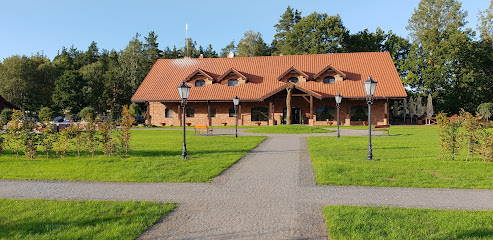
Dzūkynė
Experience authentic Lithuanian cuisine at Dzūkynė in Merkinė - where tradition meets taste in every dish.
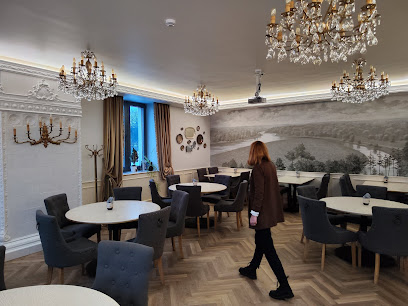
Hunters' Inn
Experience exquisite Lithuanian cuisine at Hunters' Inn in Kaunas - where every meal is a celebration of flavor.
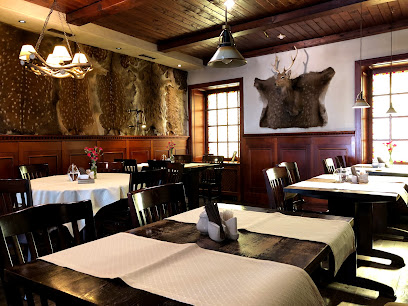
Restoranas Riba
Discover authentic Lithuanian cuisine at Restoranas Riba in Mankūnai – where fresh flavors meet warm hospitality.
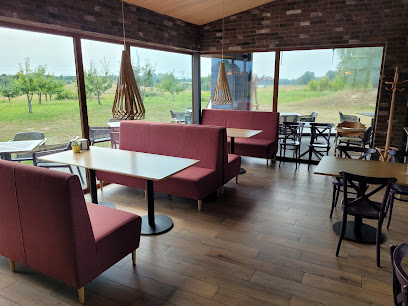
Charlie Pizza
Discover mouthwatering pizzas made with fresh ingredients at Charlie Pizza in Alytus - a must-visit spot for food lovers!
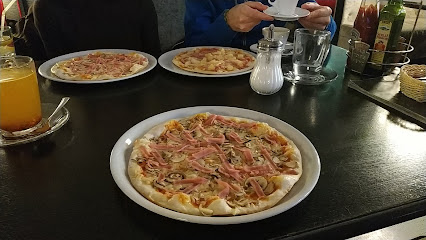
Carpe diem
Experience the essence of Lithuanian cuisine at Carpe Diem in Alytus – where every dish tells a story.
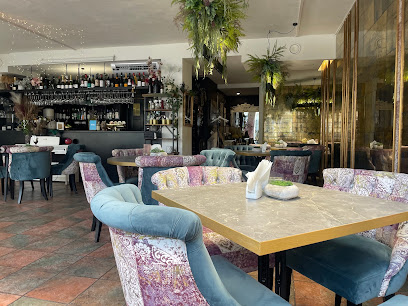
Senas Namas
Savor authentic Lithuanian flavors at Senas Namas in Alytus – where culinary tradition meets modern comfort.
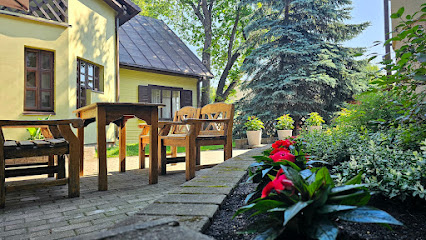
Coco Lounge
Discover the flavors of Alytus at Coco Lounge, where local ingredients meet culinary creativity in a chic atmosphere.
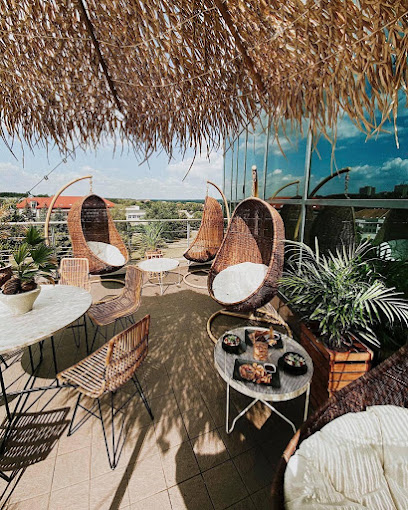
Dzūkijos Dvaro Pavilijonas prie Nemuno
Discover authentic Lithuanian cuisine at Dzūkijos Dvaro Pavilijonas by the scenic Nemunas River - a perfect blend of tradition and nature.
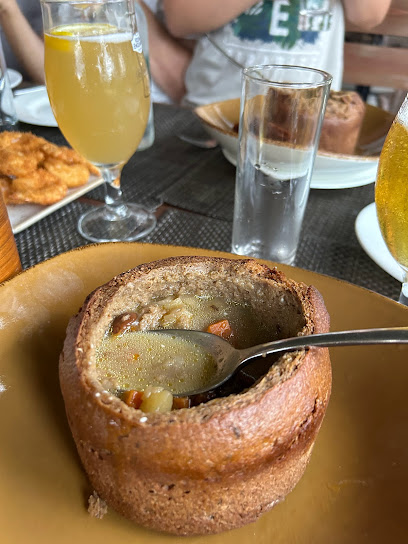
Markets, malls and hidden boutiques
Dzūkijos nacionalinio parko ir Čepkelių valstybinio gamtinio rezervato direkcija
Discover the serene beauty and rich biodiversity of Dzūkijos National Park and Čepkeliai State Nature Reserve in Lithuania.
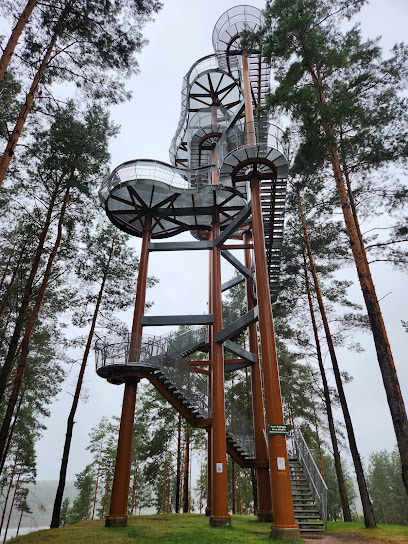
IKI - Dzūkija
Explore fresh produce and local specialties at IKI - Dzūkija, a charming grocery store in Merkinė, Lithuania, perfect for culinary adventures.
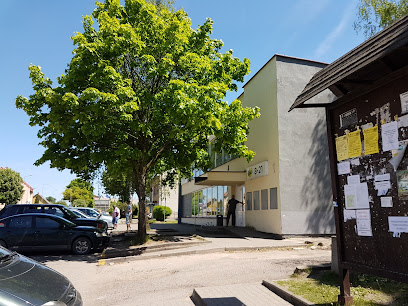
Aibė
Explore Aibė in Merkinė for local groceries, fresh produce, and a taste of Lithuanian culture while enjoying your trip.
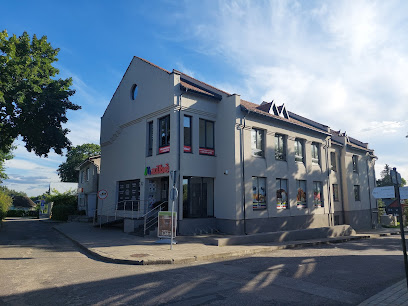
Merkinės sendaikčių Krautuvė
Explore Merkinės Sendaikčių Krautuvė: A Flea Market Full of Antiques, Crafts, and Local Treasures Awaiting Discovery.
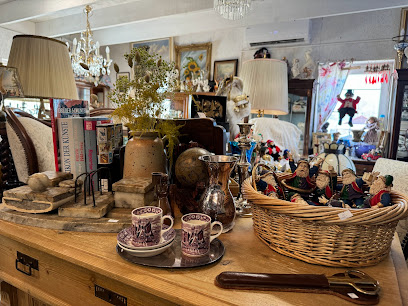
Dzukija National Honey
Discover the rich flavors of local honey and unique products at Dzukija National Honey in the heart of Varėna District, Lithuania.
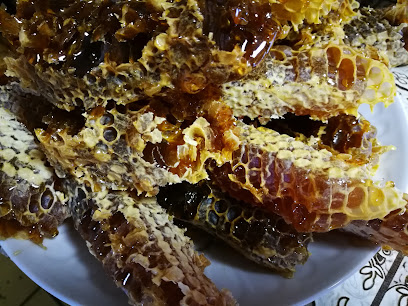
Akvavita
Discover the essence of Lithuania at Akvavita in Viečiūnai, where local craftsmanship meets a unique shopping experience.
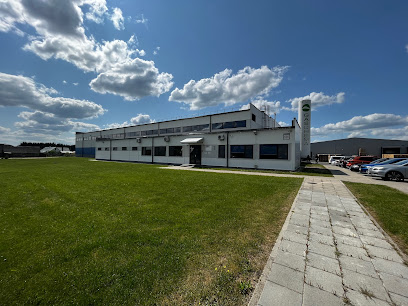
Juodosios keramikos meistro dirbtuvės
Discover the beauty of Lithuanian pottery at Juodosios Keramikos Meistro Dirbtuvės, where tradition meets artistry in every handcrafted piece.
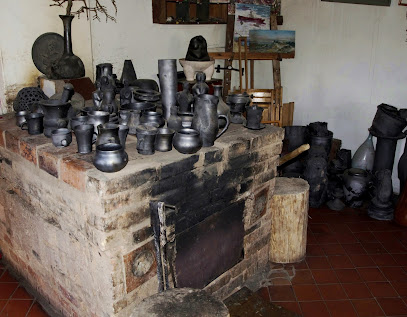
D. Baranauskienes imone
Experience local flavors and friendly service at D. Baranauskienes Imone in the heart of Alytus District.
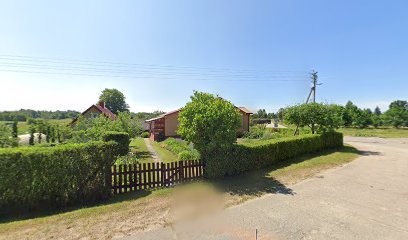
Ryliškių parduotuvė “KRAUTUVĖ“
Explore the authentic tastes of Lithuania at Ryliškių parduotuvė “KRAUTUVĖ“, your local grocery store for unique flavors and traditional products.
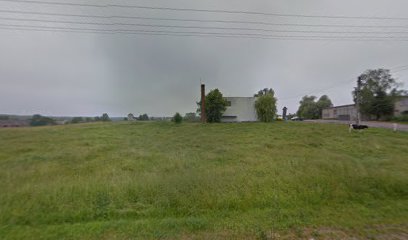
Rūtos parduotuvėlė
Discover unique local goods at Rūtos Parduotuvėlė in Merkinė, a charming store offering authentic Lithuanian souvenirs and delicacies.
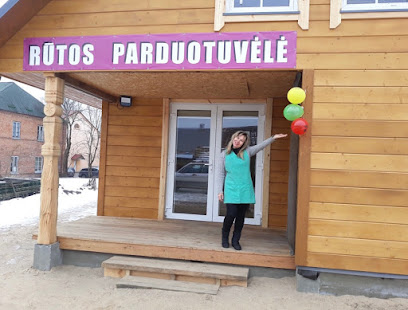
Parduotuvė
Discover the authentic tastes of Lithuania at Parduotuvė, your local grocery store in Makniūnai, bustling with fresh produce and artisanal delights.
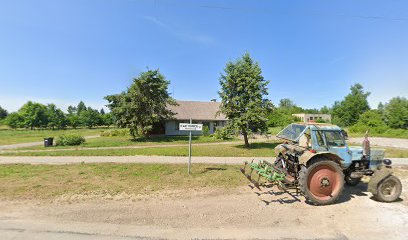
Amber Boutique (UAB Inkliuzija)
Explore Amber Boutique for exquisite handcrafted amber jewelry, reflecting local artistry and cultural heritage.
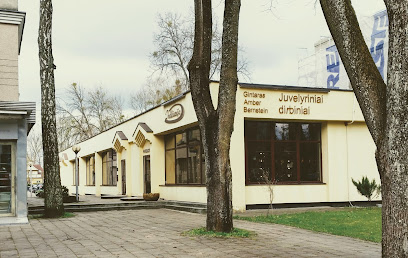
Abi Darė
Explore Abi Darė in Druskininkai for unique Lithuanian gifts, local crafts, and memorable souvenirs that capture the spirit of your travels.
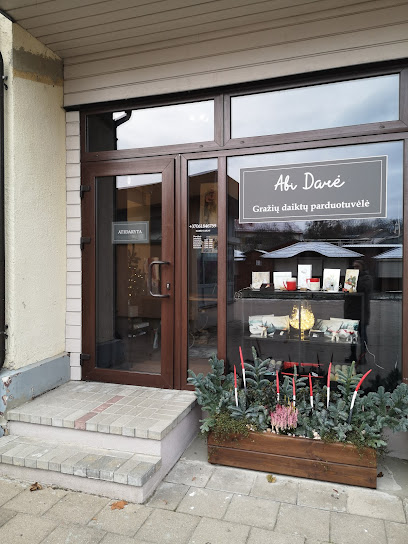
Briedis.shop
Explore the tastes of Lithuania at Briedis.shop, an internet grocery store in Viršurodukis offering quality local products and unique culinary delights.
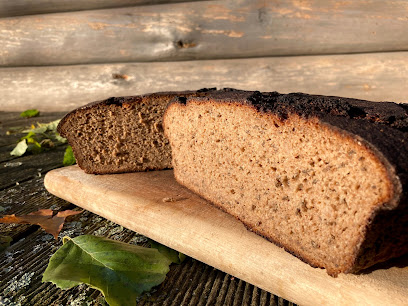
Dovanos Jums
Discover unique gifts and local crafts at Dovanos Jums, a charming gift shop in Druskininkai, perfect for all your souvenir needs.
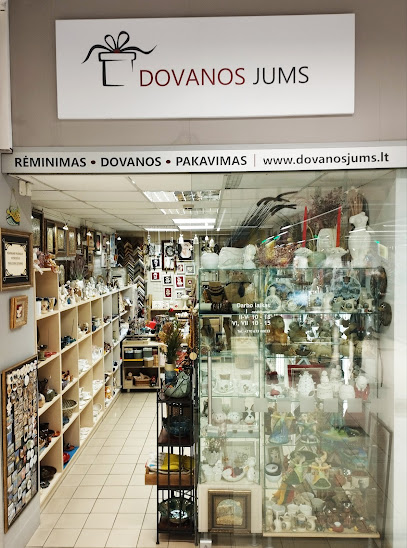
Essential bars & hidden hideouts
Dzūkų alaus restoranas
Explore the rich flavors of Lithuania at Dzūkų Alaus Restoranas, a culinary haven in Alytus offering local dishes and craft beers.
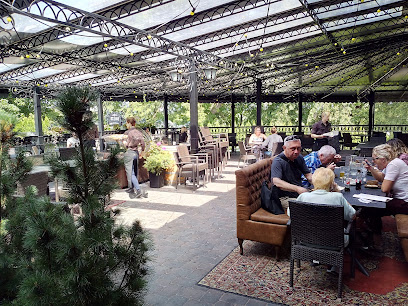
Dzūkijos Dvaras
Discover Dzūkijos Dvaras: A culinary haven in Alytus District offering traditional Lithuanian cuisine with a modern flair amidst stunning natural beauty.
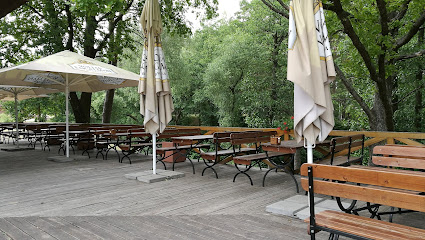
DZŪKŲ tavern, UAB DZŪKŲ AINIAI
Discover the vibrant flavors of Lithuania at DZŪKŲ Tavern in Alytus, where tradition meets modernity in a cozy bar setting.
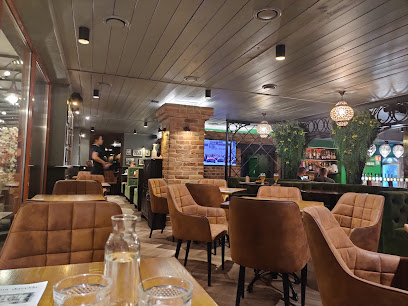
Dzūkynė
Discover the essence of Lithuanian cuisine at Dzūkynė, a charming restaurant in Merkinė, delighting guests with authentic flavors and warm hospitality.
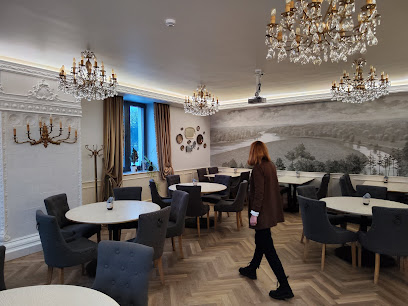
“BAGIRA Lounge” Druskininkai
Discover the charm of BAGIRA Lounge in Druskininkai, where exquisite cuisine meets a vibrant nightlife experience in a cozy atmosphere.
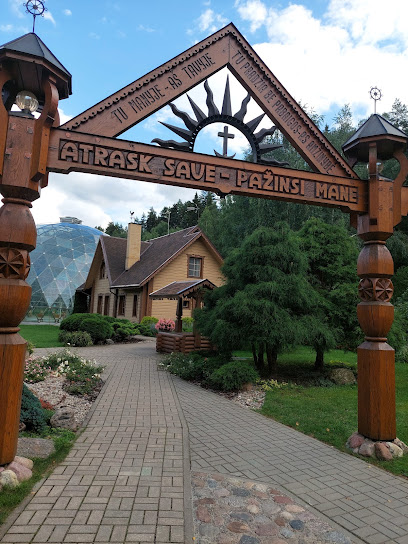
Pušis bar
Discover the energetic vibes and delectable drinks at Pušis Bar, a gem in the heart of Alytus, where locals and tourists come together.
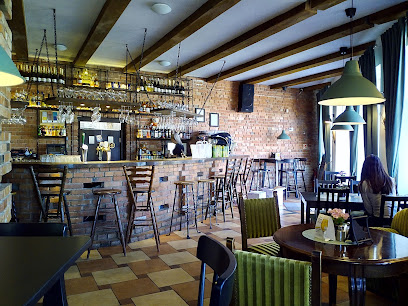
Fenix, baras, Ekstaze
Experience the vibrant nightlife at Fenix in Alytus, where drinks flow and memories are made in a lively atmosphere.
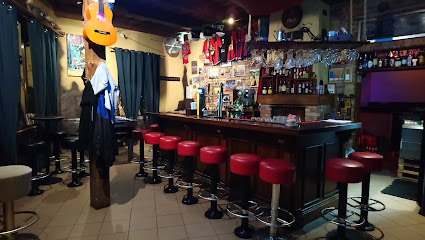
Senfortis
Discover the vibrant nightlife at Senfortis, a premier bar in Druskininkai offering delicious drinks and a welcoming atmosphere.
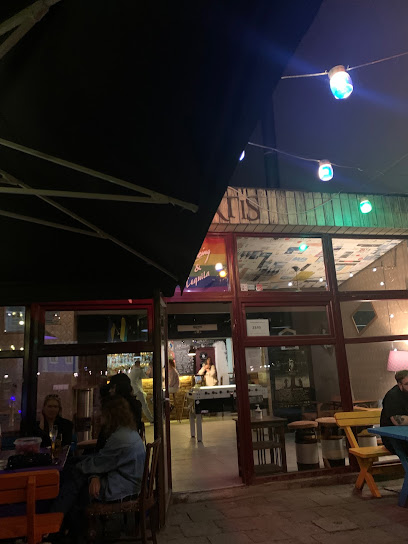
10th avenue - Cocktails & Beer Garden
Experience the perfect blend of sushi, cocktails, and vibrant nightlife at 10th Avenue - Cocktails & Beer Garden in Druskininkai.
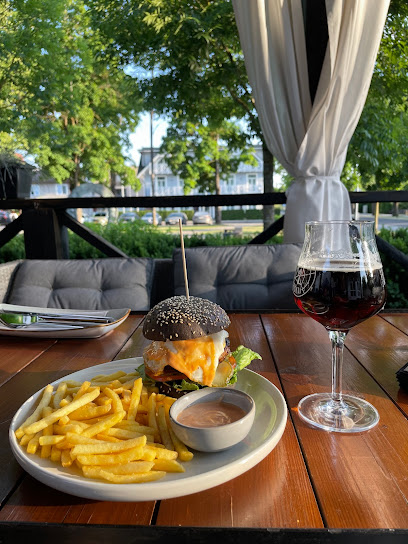
Merkinės fabrikas
Discover the authentic flavors of Lithuania at Merkinės Fabrikas, a premier barbecue restaurant in the heart of Merkinė, where tradition meets taste.
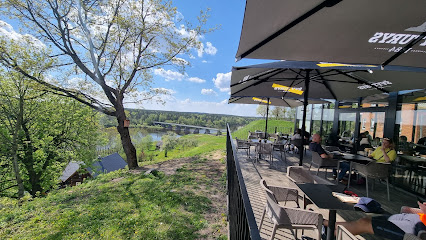
CANTINA BARAS
Savor the essence of Mexico at Cantina Baras in Druskininkai, where flavorful dishes meet vibrant live music for an unforgettable experience.
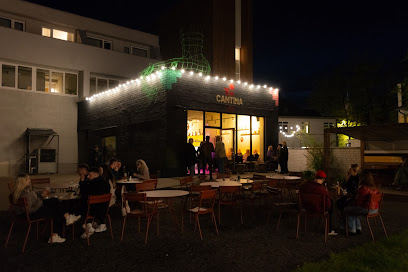
Kišenė Pub
Experience the best of Alytus nightlife at Kišenė Pub, where great drinks, live music, and a friendly atmosphere await every visitor.
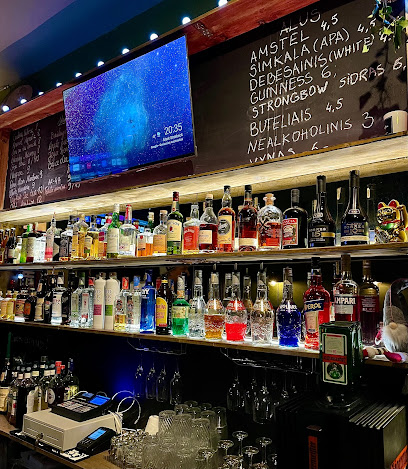
SpotOn baras
Experience vibrant nightlife at SpotOn Bar in Varėna, where great drinks and a friendly atmosphere await every visitor.
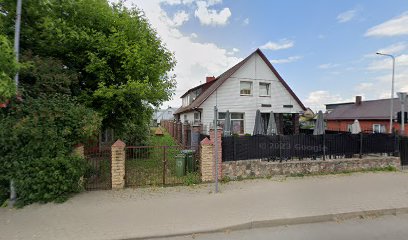
BARAS
Experience the vibrant atmosphere of Baras in Alytus, where local charm meets exceptional drinks in a cozy setting.
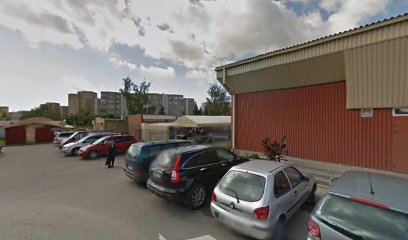
Local Phrases about Dzukija National Park
-
- HelloLabas
[lah-bahs] - GoodbyeViso gero
[vee-soh geh-roh] - YesTaip
[tah-eep] - NoNe
[neh] - Please/You're welcomePrašau
[prah-sau] - Thank youAčiū
[ah-choo] - Excuse me/SorryAtsiprašau
[aht-see-prah-sau] - How are you?Kaip sekasi?
[kaip seh-kah-see] - Fine. And you?Gerai. O tu?
[geh-rai. oh too] - Do you speak English?Ar kalbate angliškai?
[ahr kahl-bah-teh ahng-leesh-kai] - I don't understandNesuprantu
[neh-soo-prahn-too]
- HelloLabas
-
- I'd like to see the menu, pleaseNorėčiau pamatyti meniu, prašau
[noh-reh-chiau pah-mah-tee-tee meh-nyoo, prah-sau] - I don't eat meatAš nevalgau mėsos
[ahsh neh-vahl-gah-oo meh-sohs] - Cheers!Į sveikatą!
[ee svee-kah-tah] - I would like to pay, pleaseNorėčiau sumokėti, prašau
[noh-reh-chiau soo-moh-keh-tee, prah-sau]
- I'd like to see the menu, pleaseNorėčiau pamatyti meniu, prašau
-
- Help!Pagalba!
[pah-gahl-bah] - Go away!Eik šalin!
[ayk shah-leen] - Call the Police!Skambinkite policiją!
[skahm-been-kee-teh poh-lee-tsee-yah] - Call a doctor!Skambinkite gydytoją!
[skahm-been-kee-teh gih-dih-toh-yah] - I'm lostAš pasiklydau
[ahsh pah-see-kloo-dah-oo] - I'm illAš sergu
[ahsh sehr-goo]
- Help!Pagalba!
-
- I'd like to buy...Norėčiau pirkti...
[noh-reh-chiau peerk-tee] - I'm just lookingAš tik žiūriu
[ahsh teek zhee-oo-ree-oo] - How much is it?Kiek tai kainuoja?
[kyehk tahy kai-noo-yah] - That's too expensiveTai per brangu
[tai pehr brahn-goo] - Can you lower the price?Ar galite sumažinti kainą?
[ahr gah-lee-teh soo-mah-zin-tee kai-nah]
- I'd like to buy...Norėčiau pirkti...
-
- What time is it?Kiek valandų?
[kyehk vah-lahn-doo] - It's one o'clockYra viena valanda
[eer-ah vyeh-nah vah-lahn-dah] - Half past (10)Dešimt pusės
[deh-shimt poo-says] - MorningRytas
[rih-tahs] - AfternoonPopietė
[poh-pyeh-teh] - EveningVakaras
[vah-kah-rahs] - YesterdayVakar
[vah-kahr] - TodayŠiandien
[shahn-dee-ehn] - TomorrowRytoj
[rih-toy] - 1Vienas
[vyeh-nahs] - 2Du
[doo] - 3Trys
[treese] - 4Keturi
[keh-too-ree] - 5Penki
[pehn-kee] - 6Šeši
[sheh-shee] - 7Septyni
[sehp-tee-nee] - 8Aštuoni
[ahshtoo-oh-nee] - 9Devyni
[deh-vee-nee] - 10Dešimt
[deh-shimt]
- What time is it?Kiek valandų?
-
- Where's a/the...?Kur yra...?
[koor eer-ah] - What's the address?Koks adresas?
[kohks ah-dreh-sahs] - Can you show me (on the map)?Ar galite man parodyti (žemėlapyje)?
[ahr gah-lee-teh mahn pah-roh-dih-tee zheh-meh-lah-pyeh] - When's the next (bus)?Kada yra kitas (autobusas)?
[kah-dah eer-ah kee-tahs ow-toh-boo-sahs] - A ticket (to ....)Bilietas (į ....)
[bee-lee-eh-tahs ee]
- Where's a/the...?Kur yra...?
History of Dzukija National Park
-
Dzukija National Park is home to some of the earliest known human settlements in Lithuania. Archaeological findings indicate that the area has been inhabited since the Mesolithic period. Tools, pottery, and remnants of ancient dwellings have been discovered, offering a glimpse into the life of early inhabitants who thrived in this forested region.
-
During the medieval period, the dense forests of Dzukija provided refuge and sustenance for forest communities. Villages such as Zervynos and Marcinkonys emerged, with their wooden architecture and unique way of life that centered around forest resources. These communities practiced traditional crafts such as beekeeping, weaving, and wood carving, which have been preserved to this day.
-
The forests of Dzukija played a crucial role during World War II as a hideout for Lithuanian partisans resisting Nazi and later Soviet occupation. The dense woodlands provided cover for guerrilla warfare, and many local villagers supported the partisans with supplies and information. Monuments and memorials within the park commemorate the bravery and sacrifice of those who fought for Lithuania's freedom.
-
Dzukija National Park is a living museum of Lithuanian ethnographic heritage. The region is known for its unique dialect, traditional songs, and dances that have been passed down through generations. Festivals and cultural events are held regularly within the park to celebrate and preserve this rich heritage, allowing visitors to experience the vibrant traditions of Dzukija's people.
-
During the Soviet era, Dzukija faced challenges such as collectivization and industrial exploitation, which threatened its natural and cultural heritage. However, conservation efforts persisted, leading to the establishment of Dzukija National Park in 1991, shortly after Lithuania regained its independence. The park's creation marked a significant achievement in preserving the region's unique ecosystems and cultural landscapes for future generations.
-
Today, Dzukija National Park is not only a haven for biodiversity but also a vibrant cultural landscape. Local communities continue to practice traditional crafts and agricultural methods, contributing to the park's unique character. Eco-tourism and cultural tourism initiatives have flourished, offering visitors immersive experiences that highlight the harmonious relationship between nature and culture in Dzukija.
Dzukija National Park Essentials
-
Dzukija National Park is located in the southern part of Lithuania. The closest international airport is Vilnius Airport, approximately 100 kilometers away. From Vilnius, you can take a bus or train to Alytus, the nearest city to the park. The journey by road typically takes around 1.5 hours. Alternatively, you can rent a car from Vilnius and drive directly to the park, which offers more flexibility and the opportunity to explore the scenic Lithuanian countryside.
-
Once in Dzukija National Park, the best way to explore the area is by car or bicycle, especially if you want to cover a larger area. There are several rental services available in Alytus. Public transportation within the park is limited, but local buses can take you to some of the key areas. Walking is also a great way to experience the park's natural beauty up close. For guided tours, various local operators offer services that include transportation.
-
The official currency in Lithuania is the Euro (EUR). Credit and debit cards are widely accepted in most hotels, restaurants, and shops within and around the park. However, it is advisable to carry some cash, especially for small purchases or in more remote parts of the park where card payment facilities might not be available. ATMs can be found in Alytus and other larger towns near the park.
-
Dzukija National Park is generally a safe destination for tourists. However, it is always wise to take standard precautions such as not leaving valuables unattended and being aware of your surroundings. There are no specific areas within the park known for high crime rates targeting tourists. Always stay on marked trails and follow park guidelines to avoid any natural hazards.
-
In case of an emergency, dial 112 for immediate assistance. This number covers police, medical, and fire emergencies. It is recommended to have travel insurance that covers medical emergencies. The nearest medical facilities are in Alytus, where you can find hospitals and pharmacies. For minor injuries or health issues, there are first aid stations within the park.
-
Fashion: Do wear comfortable clothing and sturdy footwear suitable for hiking and outdoor activities. Avoid wearing high heels or overly formal attire. Religion: Do respect local customs and traditions, particularly when visiting religious sites within the park. Public Transport: Do be polite and give up your seat to elderly passengers if using local buses. Don't eat or drink on public transport. Greetings: Do greet people with a friendly 'Labas' (Hello). A handshake is also common. Eating & Drinking: Do try local delicacies and accept food offerings graciously. Don't refuse hospitality, as it is considered impolite.
-
To experience Dzukija National Park like a local, consider visiting the small villages within the park, such as Marcinkonys and Zervynos, where you can see traditional wooden architecture and experience local culture. Engage with locals, who are often friendly and willing to share stories about the area's history and traditions. Don't miss the opportunity to forage for mushrooms and berries, a popular activity among locals. Additionally, attending local festivals and events can provide a deeper insight into the cultural heritage of the region.
Trending Landmarks in Dzukija National Park
-
Trakai Island Castle
-
Curonian Spit National Park
-
Merkinės Piramidė
-
Grūto Parkas
-
Neris Regional Park
-
Dzūkijos nacionalinio parko ir Čepkelių valstybinio gamtinio rezervato direkcija
-
Žemaitijos nacionalinis parkas
-
LLB Museum
-
Krekenava Regional Park Observation Tower
-
Kaunas Lagoon Regional Park
-
Nemunas Loops Regional Park
-
Meteliai observation tower
-
Trakai Historical National Park
-
Girios Echo Museum
-
Nemunas Loops Regional Park, Visitor Center
Nearby Cities to Dzukija National Park
-
Things To Do in Suwalki
-
Things To Do in Kaunas
-
Things To Do in Vilnius
-
Things To Do in Jonava
-
Things To Do in Bialystok
-
Things To Do in Utena
-
Things To Do in Panevėžys
-
Things To Do in Šiauliai
-
Things To Do in Daugavpils
-
Things To Do in Olsztyn
-
Things To Do in Klaipėda
-
Things To Do in Warsaw
-
Things To Do in Elblag
-
Things To Do in Riga
-
Things To Do in Jurmala







